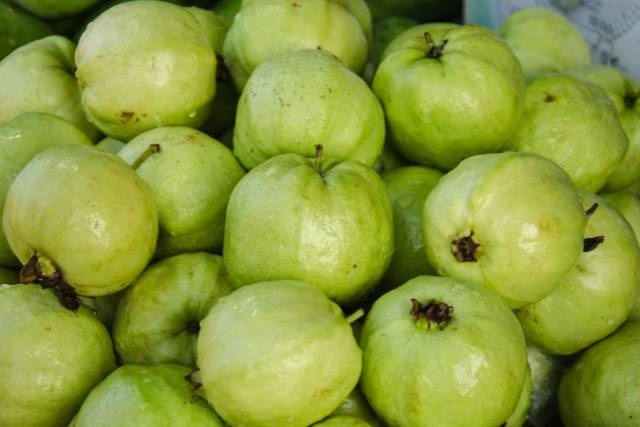Recent Posts
-

- Diabetes-Friendly Nutrition: Smart... 08.12.2024
-

- Nutrition for Chronic... 08.12.2024
-

- Anti-Inflammatory Diet: Food... 08.12.2024
-

- Low-Sodium and Heart-Healthy:... 08.12.2024
-

- Plant-Based Diets for... 08.12.2024
Guava Galore: Unveiling the Health Benefits of Amrud

The guava, also known as Psidium guajava in the scientific community, is a tropical fruit generally praised for its deliciously sweet taste and extensive nutritional advantages. The guava is a fruit that is widely consumed all over the globe and is said to have originated in Central America. It thrives in tropical and subtropical temperatures wherever it is grown. This multipurpose fruit is available in several distinct types; the apple guava is the most prevalent.
When it comes to their appearance, guavas are usually round or pear-shaped, and they have thin, edible skin that may vary in color from green to yellow to pink, depending on the type. Several little seeds, which can be white, pink, or red, may be eaten that are scattered throughout the interior flesh. The high vitamin C content of guava, which is higher than that of many citrus fruits, is one of the most appealing aspects of this unique fruit.
Beyond its delectable flavor, guava is well-known for its positive effects on one's health. Several different antioxidants, dietary fiber, vitamins A and K, and other nutrients may be found in it. The fruit has been linked to some possible health benefits, including enhancing the immune system, promoting digestion, and supporting skin health.
You may enjoy guavas in various ways, including eating them fresh, drinking their juice, or incorporating them into sweets, jellies, jams, and other sweet and savory foods. The variety of the fruit, in conjunction with its nutritional profile, makes it a pleasurable and healthy addition to diets across the international community. Guava plantations can be found in tropical places worldwide, and the fruit is considered culturally crucial in various cuisines.
Guava is a fruit abundant in nutrients and offers several health advantages. Guava consumption is related to a number of essential benefits, including the following:
High in Vitamin C content:
It is more vitamin C-rich than many citrus fruits, and guava is a good source of vitamin C. Vitamin C is necessary for the proper functioning of the immune system, the production of collagen, and the preservation of antioxidants against free radicals.
Immunity is boosted by:
The high vitamin C content of guava leads to a stronger immune system, which in turn assists the body in defending itself against infections and diseases.
Fiber from the Diet:
Guava is an excellent source of dietary fiber, which is beneficial to the health of the digestive tract. Constipation may be avoided, maintenance of a healthy digestive system can be maintained, and blood sugar levels can be regulated with the help of fiber.
Good Heart Health:
Guava has several beneficial nutrients, including fiber, potassium, and antioxidants, which may assist in better maintaining cardiovascular health by lowering blood pressure, lowering cholesterol levels, and supporting overall cardiovascular function.
Properties that are Antioxidant:
The guava fruit is loaded with various antioxidants, such as carotenoids and flavonoids, which work to combat the harmful effects of free radicals in the body. This may lessen the likelihood of developing chronic illnesses and slow aging.
Controls the Sugar Level in the Blood:
Because of the dietary fiber that is included in guava, it has the potential to aid in the regulation of blood sugar levels, making it a fruit that is useful for those who have diabetes or who want to regulate their blood glucose levels.
Helps in the Management of Weight:
A fruit that is low in calories and contains much water is called guava. As a result of the fiber content, one may have a sense of fullness, which may be beneficial to weight control since it reduces the total number of calories consumed.
Even though guava has many positive effects on health, it is essential to remember that individual dietary requirements and reactions might differ. To take advantage of the complete range of nutritional benefits, including a diversity of fruits and vegetables in a well-balanced diet is necessary.
Disclaimer: The information provided in this article is for general information purposes only. All information in this article is sourced from other websites, and we do not represent any rights regarding the contents and information on the site. All rights belong to their original owner.





